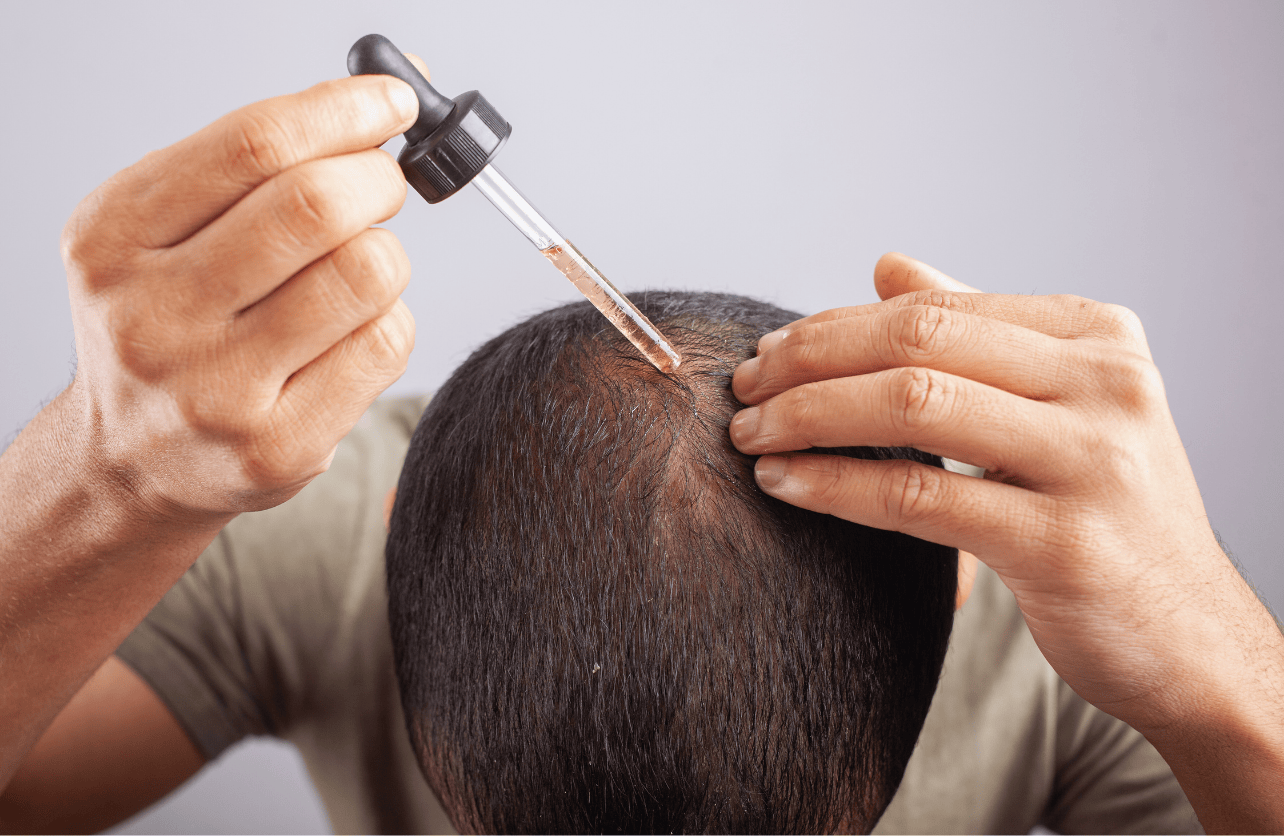Does Ozempic Cause Hair Loss?

As the popularity of Ozempic (semaglutide) rises, some users have reported unexpected side effects—including hair loss. While hair loss is not listed as a common side effect of Ozempic, there are various factors that may contribute to it. Here’s what the research says, the potential reasons behind the issue, and what you can do if you experience hair thinning while taking Ozempic.
Is Hair Loss a Known Side Effect of Ozempic?
Official prescribing information for Ozempic does not list hair loss as a direct side effect. However, some clinical trials on Wegovy—a higher-dose version of semaglutide used for weight loss—reported that around 3% of participants experienced hair loss, compared to 1% in the placebo group. Similarly, Mounjaro (tirzepatide), another GLP-1 receptor agonist, reported hair loss in 4.9% to 5.7% of users, compared to 0.9% of placebo users.
While these numbers suggest hair loss is not a widespread issue, they indicate that it can occur in a small percentage of users. The FDA is currently monitoring reports of hair loss related to GLP-1 receptor agonists, including Ozempic.
Potential Causes of Hair Loss in Ozempic Users
Although Ozempic itself may not directly cause hair loss, several factors associated with its effects on the body could contribute to shedding or thinning hair.
1. Rapid Weight Loss
One of the most common reasons for hair loss among Ozempic users is rapid weight loss. When the body undergoes significant weight loss in a short period, it can trigger telogen effluvium, a temporary condition in which hair prematurely enters the shedding phase. This type of hair loss is often seen in people who have undergone bariatric surgery or followed extreme calorie-restrictive diets.
2. Nutritional Deficiencies
Losing weight too quickly can also lead to nutritional deficiencies, particularly in iron, biotin, zinc, and protein, all of which are crucial for healthy hair growth. If Ozempic suppresses appetite to the point where nutrient intake is compromised, hair follicles may become weaker and shed more easily.
3. Hormonal Changes
Ozempic influences glucose metabolism and insulin levels, which can have downstream effects on hormone balance. Hormonal fluctuations can disrupt the normal hair growth cycle, particularly in individuals who are already predisposed to hair loss due to conditions like polycystic ovary syndrome (PCOS) or thyroid disorders.
4. Stress and Medication Adjustment
Starting a new medication, especially one that alters metabolism, can be a physiological stressor on the body. Stress-related hair loss (telogen effluvium) can occur a few months after beginning Ozempic, but the good news is that it is usually reversible once the body adjusts.
How to Prevent or Reduce Hair Loss While Taking Ozempic
If you are experiencing hair loss while on Ozempic, there are several steps you can take to help minimize shedding and support healthy hair regrowth.
1. Prioritize a Nutrient-Dense Diet

Make sure you are consuming enough protein, iron, biotin, and zinc, as these nutrients play a key role in maintaining hair strength and growth. Consider incorporating foods such as:
- Lean meats, eggs, and fish (protein, iron, biotin)
- Leafy greens and nuts (iron, zinc)
- Whole grains and legumes (biotin, zinc)
2. Avoid Extreme Calorie Restriction
While Ozempic naturally suppresses appetite, it’s important to maintain adequate calorie intake to avoid malnutrition-related hair shedding. If you’re losing weight too quickly, consider adjusting your meal plan to ensure proper nutrition.
3. Manage Stress Levels

High stress can exacerbate hair loss. Engage in stress-reducing activities such as exercise, meditation, or yoga to help keep stress hormones in check.
4. Consider Hair Growth Treatments

If hair thinning persists, topical treatments like minoxidil (Rogaine) or supplements specifically designed for hair health may help stimulate regrowth. Always consult a doctor before adding new treatments to your routine.
5. Talk to Your Healthcare Provider
If you notice persistent or worsening hair loss, discuss it with your doctor. They may check for underlying deficiencies, suggest dietary adjustments, or recommend alternative medications if needed.
Final Thoughts
While Ozempic is not directly linked to hair loss, factors such as rapid weight loss, nutritional deficiencies, and hormonal shifts may contribute to shedding in some users. Fortunately, in most cases, hair loss due to telogen effluvium is temporary and reversible. By ensuring a balanced diet, avoiding excessive calorie restriction, and managing stress, you can help support your hair’s health while using Ozempic.
If hair loss becomes a major concern, consult with a healthcare provider to explore possible solutions tailored to your needs.
Building a Stronger You
Supplement Institute is the fruit of extensive online publishing experience, spanning the breadth of SEO strategies to the nuances of paid advertisements. Our journey, marked by significant achievements and learning moments, inspires our core mission: to empower our readers with an abundance of information. By sharing insights and key learnings, we aim to provide you with the knowledge needed to navigate the complex world of supplements, helping you make well-informed decisions for your health and well-being. Welcome to Supplement Institute, where information is your greatest supplement.